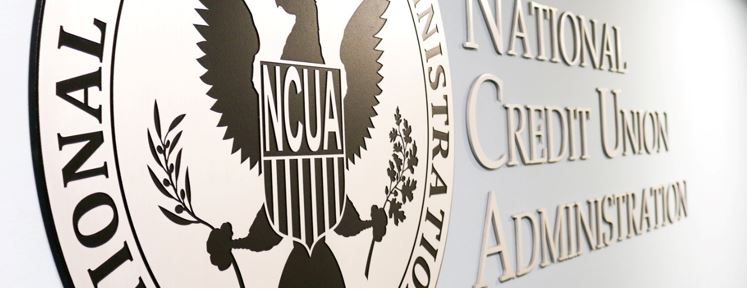
On September 21st, NCUA chairman Todd Harper issued a Guidance Letter titled “Navigating and Understanding the End of Pandemic-Era Homeowner Protection Programs.” While stating that the pandemic is not over, it warns that the recent end of pandemic related consumer moratoriums could cause a rise in delinquency in real estate secured loans. It is suggesting that credit unions provide yet additional forbearances and modifications. It appears as though they have some dire expectations.
To: Federally Insured Credit Unions
Subject: Consumer Protection
Status: Active
Dear Boards of Directors and Chief Executive Officers:
Since the COVID-19 pandemic began in early 2020, the federal government has enacted a series of programs to help people stay in their homes. Specifically, struggling homeowners received help through loan forbearance and several moratoriums on foreclosures and evictions for federally backed mortgages.1 In addition, many credit unions responded by providing loan modifications under Section 4013 of the Coronavirus Aid Relief and Economic Security Act (CARES Act) to provide payment relief for their members during this difficult period.2 Although the pandemic has not ended, some of these pandemic-era protection programs have expired or are nearing expiration. This letter provides credit union lenders and mortgage servicers with critical information for compliance with changes to these pandemic-era protection programs.
Deadline to Grant CARES Act Forbearance Extended to September 30, 2021
Section 4022 of the CARES Act provides homeowners with federally backed mortgages the option to temporarily suspend their monthly mortgage payments, with an initial 12 months of forbearance.3 The forbearance period was subsequently extended up to 18 months.4 Borrowers who have not previously been in forbearance have until September 30, 2021, to request assistance.5 When the forbearance period ends, borrowers will need to work with their credit union mortgage servicers to establish a repayment plan for missed payments.
The Federal Housing Finance Agency and other agencies that provide federally backed mortgages have announced a series of programs to help borrowers exiting forbearance to stay in their homes.6 These programs require — where agencies have the authority and depending on homeowners’ financial conditions — or encourage mortgage servicers to offer borrowers new payment reduction and loan modification options that can help homeowners remain in their homes.
The NCUA strongly encourages credit unions to work with borrowers who are exiting the forbearance period. Such assistance may include helping borrowers to lower their payments. Credit unions need to provide this assistance in a safe and sound manner and comply with all applicable consumer financial protection laws. Credit unions should refer to the Consumer Financial Protection Bureau’s (CFPB) website(opens new window) for more information on federally backed mortgage-modification programs.7
Credit Unions Can Continue to Grant Section 4013 CARES Act Loan Modifications Until January 1, 2022
For non-federally backed mortgages, Section 4013 of the CARES Act allows credit unions to modify a loan, including forbearance, without designating the modification as a troubled debt restructuring if it meets the following criteria:
- The loan was in existence before December 31, 2019;
- The modification is related to COVID-19;
- The borrower was less than 30 days past due as of December 31, 2019; and
- The modification is executed between March 1, 2020 and the earlier of January 1, 2022, or 60 days after the date of termination of the national emergency concerning COVID–19 outbreak declared by the President on March 13, 2020.8
At the end of the forbearance or loan modification period, the NCUA encourages credit unions to use every effort, consistent with safe and sound practices and consumer financial protection, to help borrowers stay in their homes. These efforts may include granting additional loan modifications that are in the long-term best interests of the credit union and its members.
Foreclosure Moratorium Expired July 31, 2021
In addition to the forbearance provision, Section 4022 of the CARES Act also aided homeowners by imposing a temporary moratorium on foreclosures for federally backed mortgages.9 The moratorium initially expired in 2020 but has since been extended several times, with a final expiration on July 31, 2021.10
To ease the burden on homeowners with the end of this protection program, whether their mortgage is federally backed or not, the CFPB recently issued a final rule temporarily amending certain mortgage servicing requirements under Regulation X to assist borrowers affected by COVID-19.11 Among other amendments, the final rule establishes temporary special COVID-19 loss mitigation procedural safeguards to ensure that a borrower has a meaningful opportunity to pursue loss mitigation options.
Unless an exception applies, from August 31, 2021, through December 31, 2021, a servicer must meet at least one of the specified safeguards before initiating any judicial or non-judicial foreclosure process where a borrower became more than 120 days delinquent on or after March 1, 2020. The applicable state statute of limitations on foreclosures expires on or after January 1, 2022. The final rule does not apply to small servicers.12
Credit union mortgage servicers should fully understand the CFPB final rule before initiating foreclosures. Refer to Regulatory Alert, RA-08-20, for more information on this final rule by the CFPB.
Eviction Moratorium Expires September 30, 2021
Similar to the forbearance protection, Section 4022 of the CARES Act also mandated that mortgage servicers may not evict homeowners from a property with a federally backed mortgage that has been foreclosed. The eviction moratorium has been extended several times, with a current expiration of September 30, 2021.13 Credit union mortgage servicers should be aware of this restriction, which aims to keep people in their homes even after the home has been foreclosed.
Other Homeowner and Renter Assistance Programs
The American Rescue Plan(opens new window) provides almost $10 billion to help struggling homeowners with financial assistance to help keep them in their homes. Homeowners may use this money for mortgage payments, utilities, insurance, and other needs. The American Rescue Plan and earlier pandemic-related statutes also provided financial assistance to renters and landlords through the Emergency Rental Assistance Program. Credit unions should refer to the U.S. Department of Treasury’s website(opens new window) and direct struggling members to those resources.
The NCUA is concerned about the financial well-being of credit unions and their members. While some of these pandemic protection programs may be ending, there are resources and new programs available to help ease the impact of the COVID-19 pandemic on homeowners. The NCUA encourages credit unions to understand these changes and use these resources to work with their members. Credit unions are also encouraged to share consumer education resources, available at NCUA’s MyCreditUnion.gov(opens new window), the U.S. Department of Treasury’s website, and the CFPB’s unified housing website, with concerned members.
Sincerely,
/s/
Todd M. Harper
Chairman
Source: NCUA










